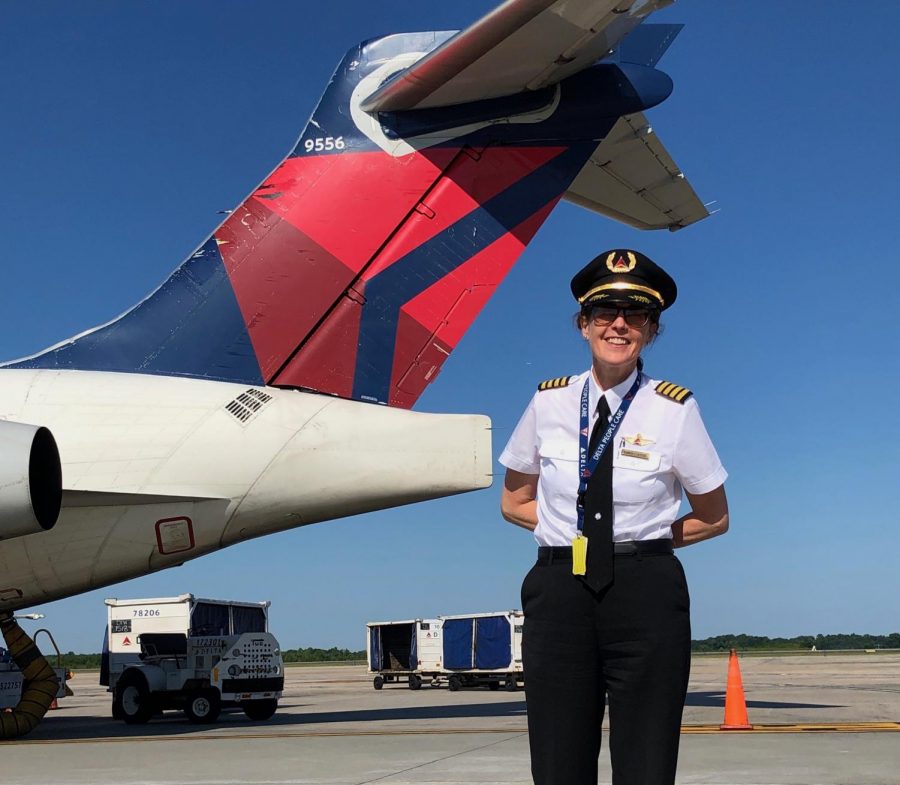Women in Aviation
One night during dinner, Annmarie Savitski and her family were discussing their future careers. Savitski suggested the idea of wanting to become a psychiatrist or a flight attendant. Finding the statement ironic, her brothers and sisters laughed and told her it wasn’t possible to be a flight attendant because she was too afraid of heights. Savitski’s father later recommended not becoming a psychiatrist, assuming that she would eventually have her problems to deal with as an adult.
Savitski was disappointed with her family’s reaction, but when her father casually suggested that if she would work on a plane, why not fly the plane. This got Savitski’s brain wondering about the possibility of flying a plane.
“It was something my dad would always tell me growing up,” Savitski said. “If you want to be a nurse, be a doctor, if you want to be a waitress, own the restaurant, dare to take the extra step.”
When Savitski began college, she quickly realized how different it was from her all-girls Catholic high school. She was a part of predominantly male maintenance programs and flying programs, with about four girls in a class of 60 people. Though there was a significant difference, Savitski was in awe of what she was learning on a day-to-day basis.
“I was so naive at that time in my life,” Savitski said. “I don’t think I experienced any discrimination during school, but if there was, I wasn’t paying any attention to it.” Savitski said.
Savitski worked extremely hard and tried her best on every assignment and task. Even with the usual ups and downs, she did not let any negativity deter her from reaching her goal of becoming a pilot.
“I’ve done everything on my own time and have never tried to rush my career,” Savitski said. “I always took the next step when I knew I was more than ready, regardless if anyone was looking at me like I wasn’t deserving of where I was in my career, I knew who I was and was confident in my own abilities.”
Having a positive attitude has kept Savitski on a very successful career path. Especially working as a pilot, there has to be a significant amount of trust between the captain and the rest of the crew. She feels that if she comes prepared to have a positive attitude, it’s easy to develop a strong relationship with the coworkers you are flying with.
“Somebody’s attitude is their own weaknesses and most of the time has nothing to do with what you’re doing in your own life and the choices you’re making.” Savitski said.
During the busy spring season, Savitski was flying with an all female crew. Everyone was genuinely excited because it was a very rare occasion. Overjoyed with excitement, the gate attendant of the flight made an announcement saying the plane was to be flown by only women, which received a chorus of clapping from the passengers.
Once the plane had touched down, Savitski got a message saying that there was a passenger who wanted to talk to her, the captain of the plane.
“I began talking to the passenger, and he tells me that he is very upset that I had made an announcement about having an all female crew,” Savitski said.
She began explaining to the passenger that she was not the one who made the announcement, but was rudely interrupted by the passenger, who was repeatedly accusing Savitski of making the announcement. He continued ranting at Savitski, explaining that he believed everyone should be qualified.
“I just responded saying that I heard him and that I appreciated his opinion, but all the women in the crew were very qualified, ” Savitski said. “Then I thanked him for sharing his opinion, shook his hand and he walked away.”
Even though Savitski has faced struggles and discrimination within her career, she continues to educate and expose the young women around her. If Savitski’s dad hadn’t opened her eyes to the possibility and told her she could make it as a pilot, then she probably would’ve never thought about it.
“I just hope that beyond visiting colleges and high schools, I have provided a way to let women know that if you can see it, you can be it.” Savitski said.




